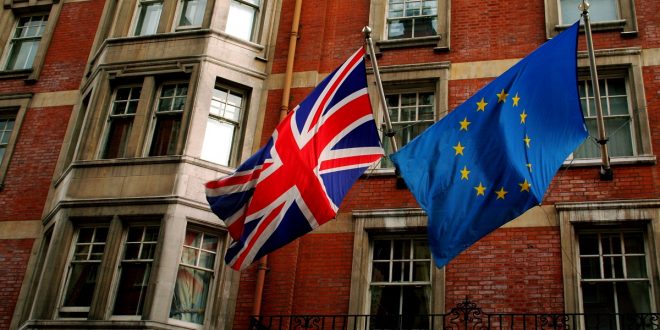Michael Barnier urges Britain to start ‘negotiating seriously’ as third round of talks with David Davis begins
The Guardian
Jennifer Rankin
29 August, 2017
The EU’s chief negotiator on Britain’s exit from the bloc is “concerned” about the progress of talks and has urged the UK to start “negotiating seriously”, as the third round of talks with the UK’s Brexit secretary, David Davis, began in Brussels.
Michel Barnier said he welcomed the British government’s position papers, which he said had been read “very carefully” in Brussels, but standing beside Davis he added that he wanted the UK to come clean on how much it was prepared to pay in terms of an exit bill.
Barnier said he thought this was not good enough: “We need UK positions on all separation issues. This is necessary to make sufficient progress. We must start negotiating seriously. We need UK papers that are clear in order to have constructive negotiations. And the sooner we remove the ambiguity the sooner we will be in a position to discuss the future relationship and to a transitional period.”
However, Davis will refuse to spell out what he think the UK could be liable for, despite having admitted Britain has “obligations” from its 44 years of EU membership.
European leaders have agreed unanimously that the UK must make sufficient progress on three separation issues before talks can progress to trade. Barnier’s mandate means the UK has to reach an agreement on the financial settlement, the Irish border and EU citizens’ rights before discussing a future relationship with the EU.
Davis has repeatedly said this timetable is “inflexible”. As he entered the talks, he repeated his call for the EU to show “imagination” about the organisation of the talks.
“For the United Kingdom, the week ahead is about driving forward the technical discussion ahead across all the issues. We want to lock in the points where we agree, unpick the areas where we disagree and make further progress on the whole range of issues. In order to do that we require flexibility and imagination from both sides.”
Davis was due to leave Brussels on Monday night to attend government meetings the next day. More than 100 British officials are expected to take part in this third round of talks, dedicated to the three divorce issues and technical problems such as the status of goods crossing borders after Brexit day.
According to the report, France had proposed the UK pay €10bn (£9.25bn) a year into the EU budget during a three-year transitional period and continue to accept EU law. The UK would then be allowed to progress to trade talks in October. Charles Grant, the director of the Centre for European Reform, gave a similar account in a Guardian comment article, saying that “hardliners” around Barnier were blocking this option.
But sources at the Élysée dismissed the notion. The “allegations” in the Telegraph were not based on anything and did not correspond to reality, said one source, who added that France “fully supports” the mandate that EU leaders had given to Barnier.
The story surprised Brussels watchers because France played a leading role in drawing up the EU negotiating mandate. Barnier is also a former French government minister, who was handpicked by François Hollande, the former French president, to lead the Brexit negotiations.
However the €10bn figure corresponds to the black hole in the EU’s annual accounts after Brexit. Moreover EU officials are studying whether Britain could continue to pay into the EU budget until 2020. This is seen as one way of sweetening the Brexit divorce bill as the UK could present it as the price of single-market access, while the EU could avoid the headache of finding new money to replace the British contribution.
The UK is due to leave the EU in March 2019, 21 months before the end of the seven-year budget agreed with David Cameron. But the budget payments would not cover all of Britain’s liabilities, in the eyes of EU negotiators. Brussels thinks the total Brexit bill is much higher, with estimates of about €75bn, including the UK’s share of pension liabilities and unpaid bills.
So far EU member states agree that the UK should pay for what are deemed “British liabilities” and are in no rush for a divorce deal in October. One EU diplomat said many countries were ready to wait until the end of the year for the divorce deal, rather than the early autumn as the British had hoped. “We are ready to let the October deadline pass by.”
 Lebanese Ministry of Information
Lebanese Ministry of Information



